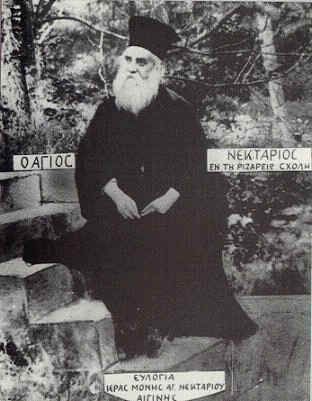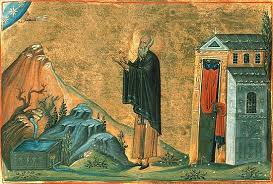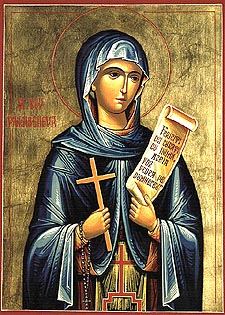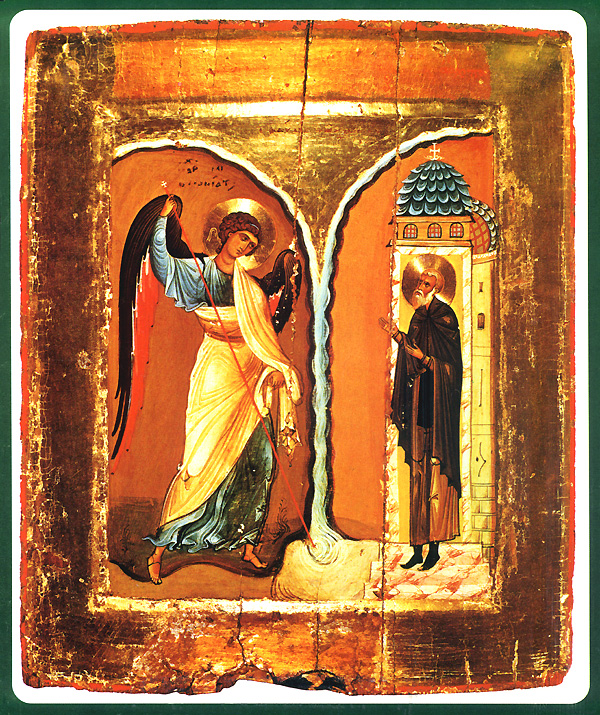Archpriest Alexander A. Winogradsky Frenkel: The Ethics Of Purity
 MEMRA – WORDS, Meaning And Faith
MEMRA – WORDS, Meaning And Faith
A new 2018-19 series of articles shared on the roots and the prospects that unite Eastern and Oriental Oxthodox Traditions to the realm of Jewishness and Hassidism,
Compared semantics and exegetical “paysages” by archpriest Alexander Winogradsky Frenkel (Patriarchate of Jerusalem). Below the eighth article.
Writings of Saint Nectarios of Aegina
Translation of the relics of St. Nectarios of Aegina, August 21/September 3
Selected Passages From the Writings of Orthodox Saints, Compiled by Father Demetrios Serfes.
* * *
Christianity.
 The Christian religion is not a certain philosophic system, about which learned men, trained in metaphysical studies, argue and then either espouse or reject, according to the opinion each one has formed. It is faith, established in the souls of men, which ought to be spread to the many and be maintained in their consciousness.
The Christian religion is not a certain philosophic system, about which learned men, trained in metaphysical studies, argue and then either espouse or reject, according to the opinion each one has formed. It is faith, established in the souls of men, which ought to be spread to the many and be maintained in their consciousness.
There are truths in Christianity that are above out intellectual comprehension, incapable of being grasped by the finite mind of man. Our intellect takes cognizance of them, becomes convinced of their reality, and testifies about their supernatural existence.
Venerable Abramius the Recluse of Mesopotamia
 Saint Abramius the Hermit and Blessed Maria, his niece of Mesopotamia, lived the ascetic life in the village of Chidan, near the city of Edessa. They were contemporaries and fellow countrymen of Saint Ephraim the Syrian (January 28), who afterwards wrote about their life.
Saint Abramius the Hermit and Blessed Maria, his niece of Mesopotamia, lived the ascetic life in the village of Chidan, near the city of Edessa. They were contemporaries and fellow countrymen of Saint Ephraim the Syrian (January 28), who afterwards wrote about their life.
Saint Abramius began his difficult exploit of the solitary life in the prime of youth. He left his parents’ home and settled in a desolate wilderness place, far from worldly enticements, and he spent his days in unceasing prayer. After the death of his parents, the saint refused his inheritance and requested his relatives to give it away to the poor. By his strict ascetic life, fasting, and love for mankind, Abramius attracted to him many seeking after spiritual enlightenment, prayer and blessing.
Venerable Parasceva (Petka) of Serbia
 Saint Paraskeva the New was born into a pious family, living during the eleventh century in the village of Epivato, between Silistra and Constantinople. Her older brother Euthymius became a monk, and later he was consecrated as Bishop of Matidia. One day, while attending the divine services, the words of the Lord pierced her heart like an arrow, “If any man will come after Me, let him deny himself” (Mt. 16:24). From that time she began to distribute her clothing to the needy, for which reason she endured much grief from her family.
Saint Paraskeva the New was born into a pious family, living during the eleventh century in the village of Epivato, between Silistra and Constantinople. Her older brother Euthymius became a monk, and later he was consecrated as Bishop of Matidia. One day, while attending the divine services, the words of the Lord pierced her heart like an arrow, “If any man will come after Me, let him deny himself” (Mt. 16:24). From that time she began to distribute her clothing to the needy, for which reason she endured much grief from her family.
Commemoration of the Miracle of the Archangel Michael at Colossae
 In Phrygia, not far from the city of Hieropolis, in a place called Cheretopos, there was a church named for the Archangel Michael, built over a miraculous spring.
In Phrygia, not far from the city of Hieropolis, in a place called Cheretopos, there was a church named for the Archangel Michael, built over a miraculous spring.
This church was built by a certain inhabitant of the city of Laodicia in gratitude to God for healing his mute daughter. The holy Chief Commander Michael appeared to this man in a dream and revealed to him that his daughter would receive the gift of speech after drinking from the water of the spring. The girl actually did receive healing and began to speak. After this miracle, the father and his daughter and all their family were baptized. In fervent gratitude, the father built the church in honor of the holy Chief Commander Michael. Not only did Christians begin to come to the spring for healing, but also pagans. In so doing, many of the pagans turned from their idols and were converted to the faith in Christ.






